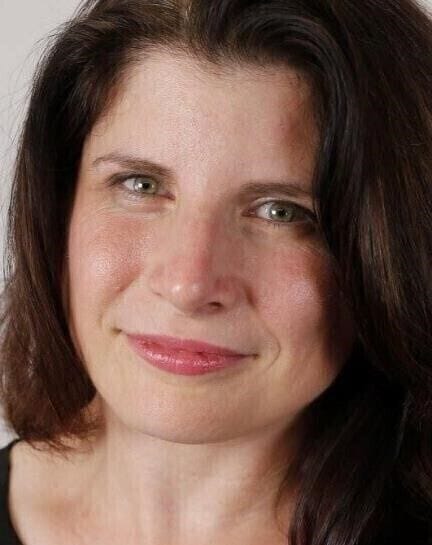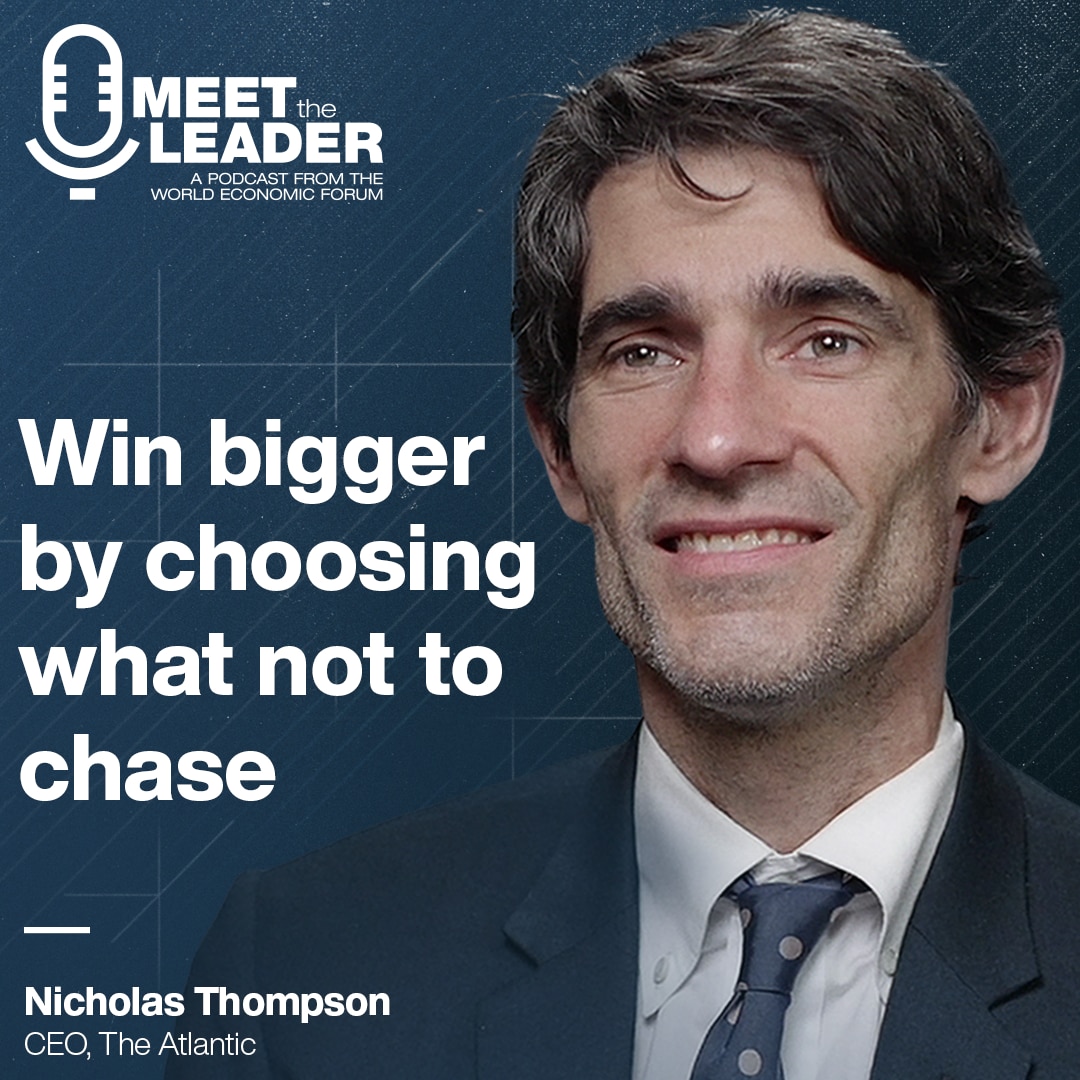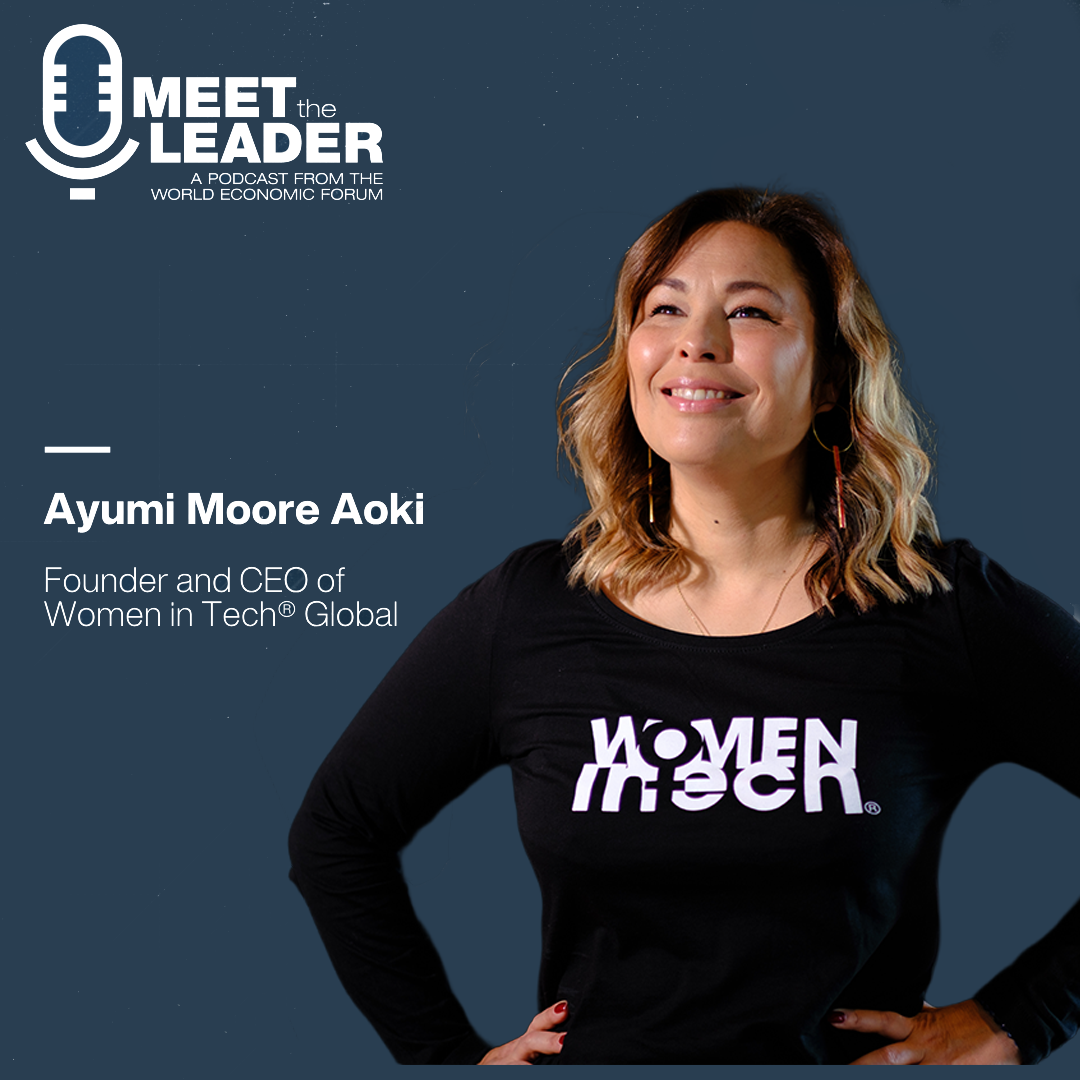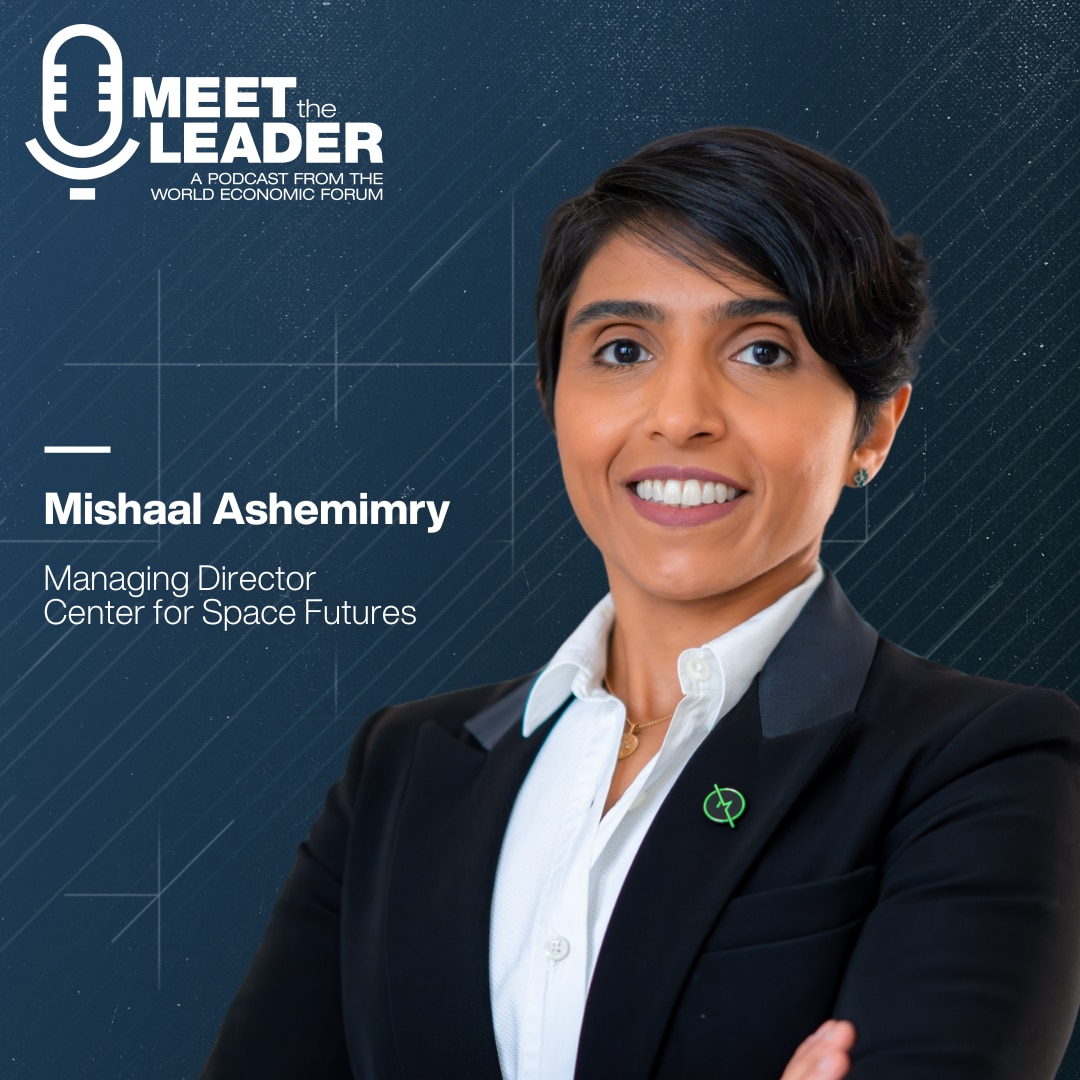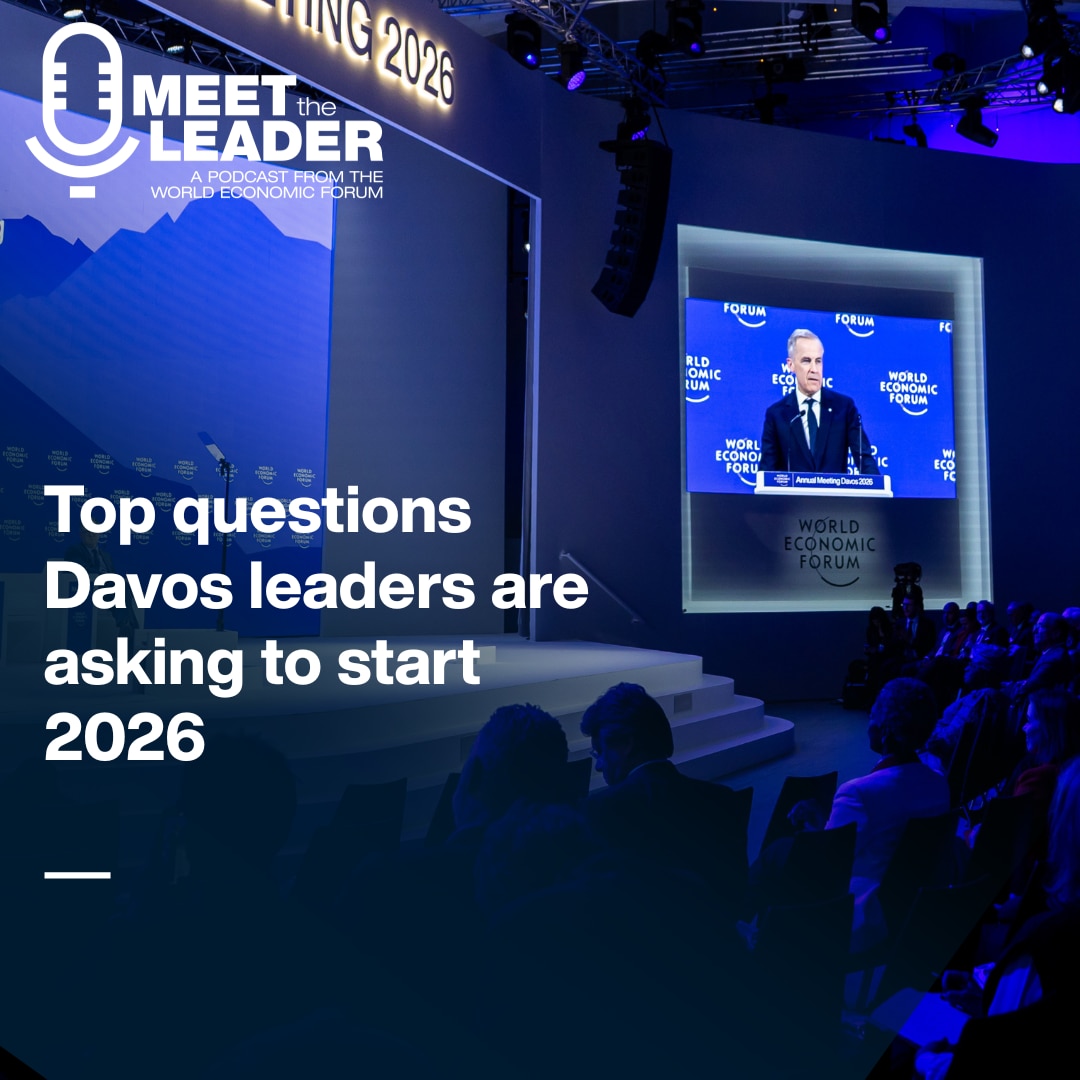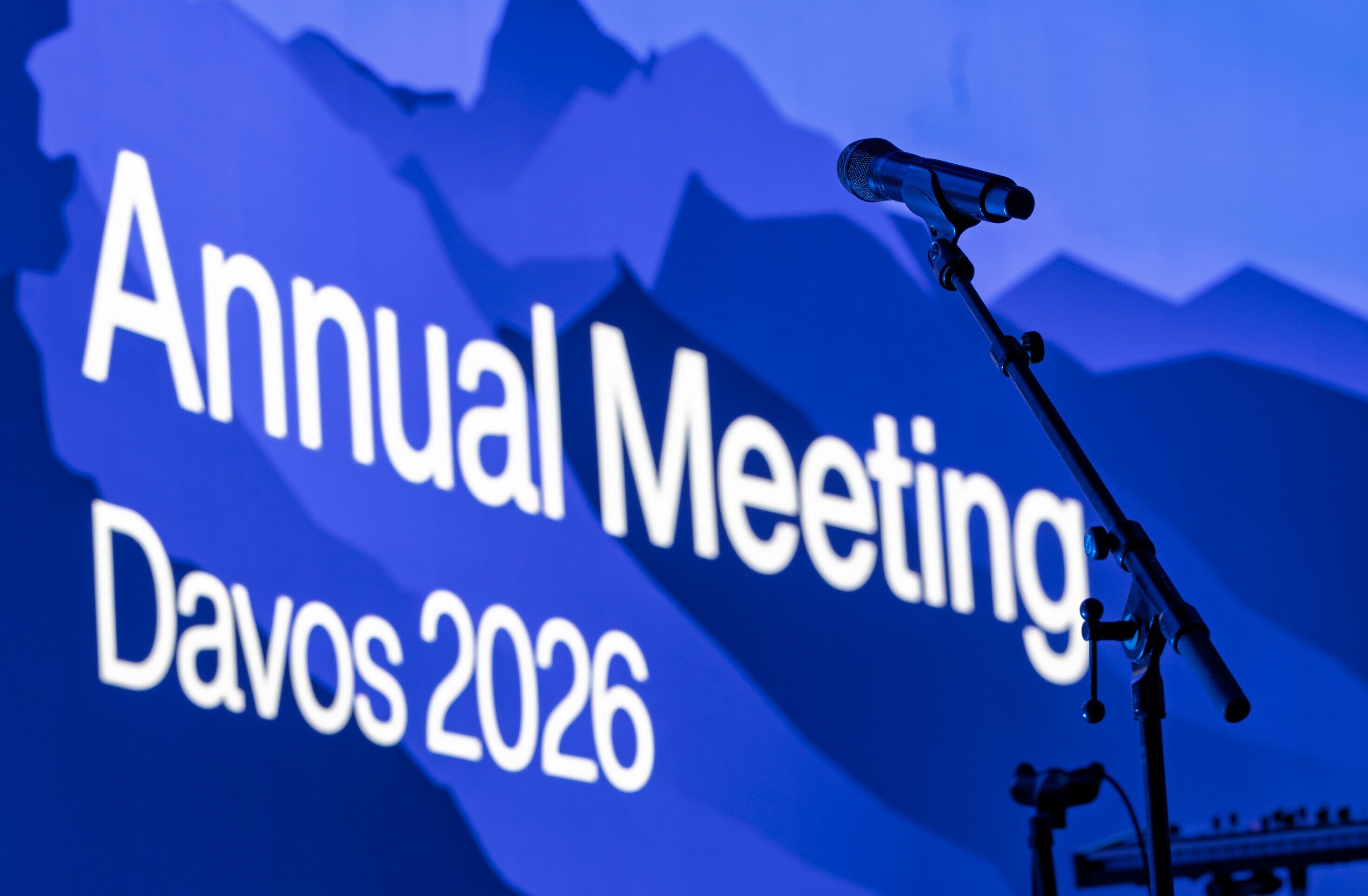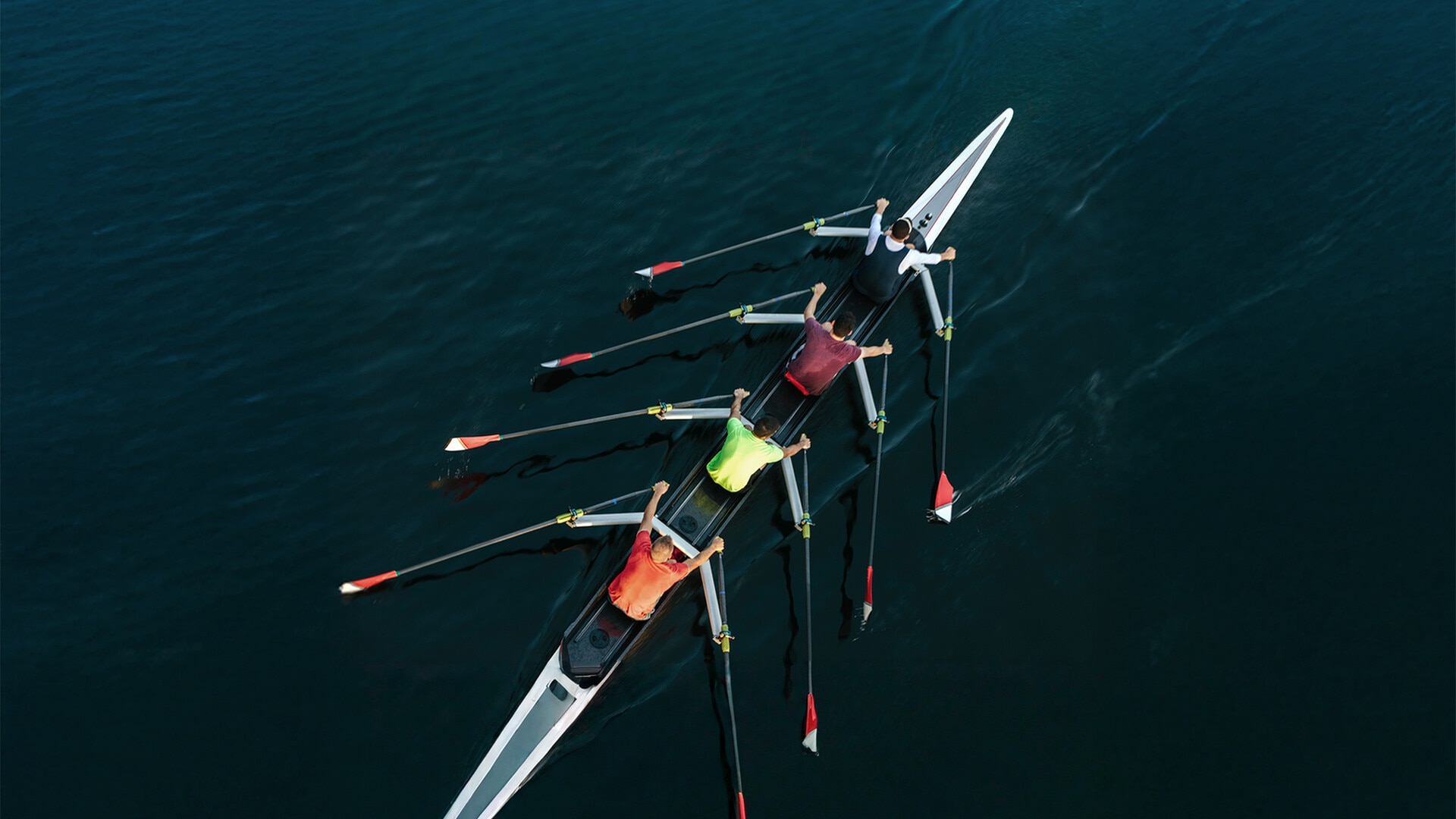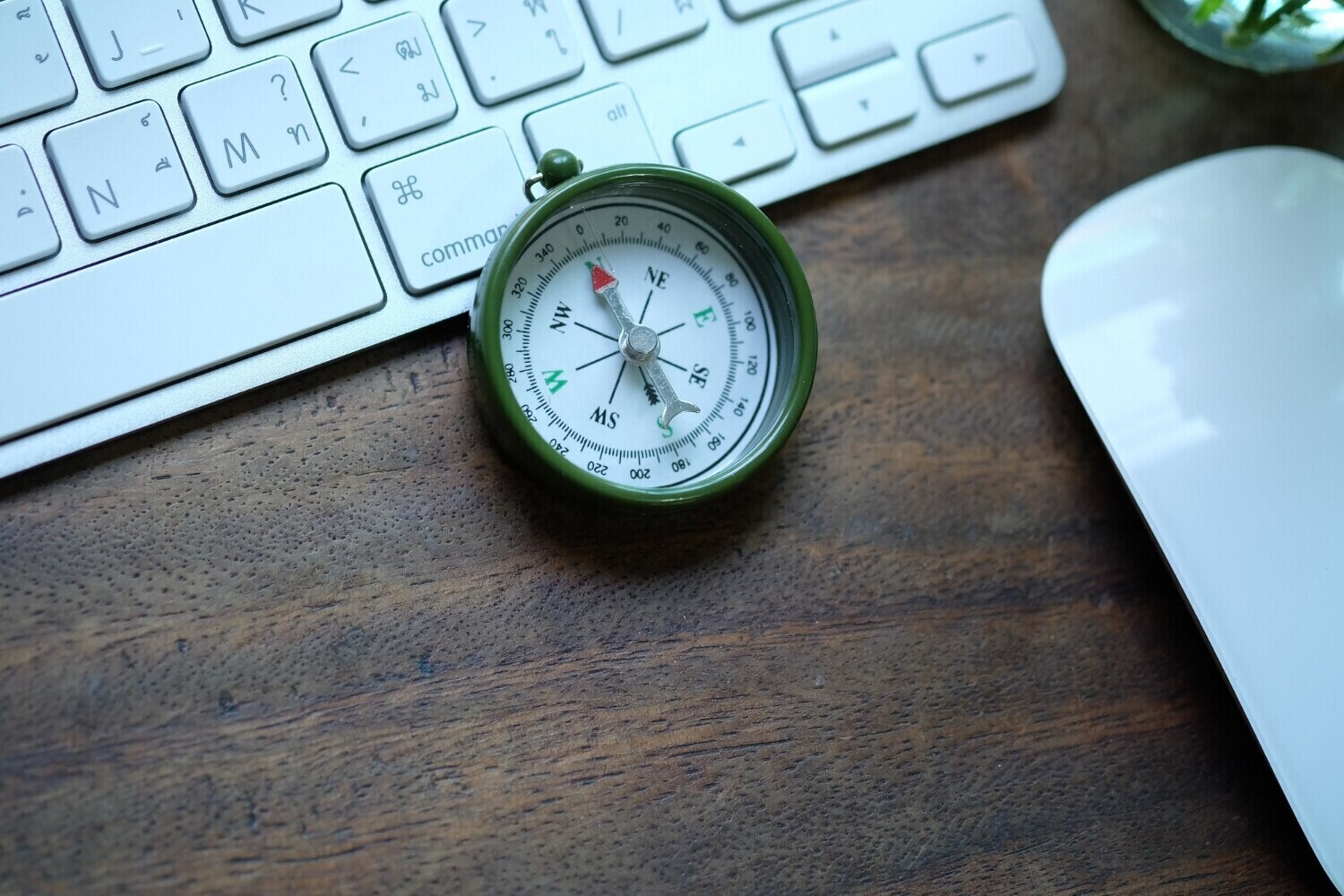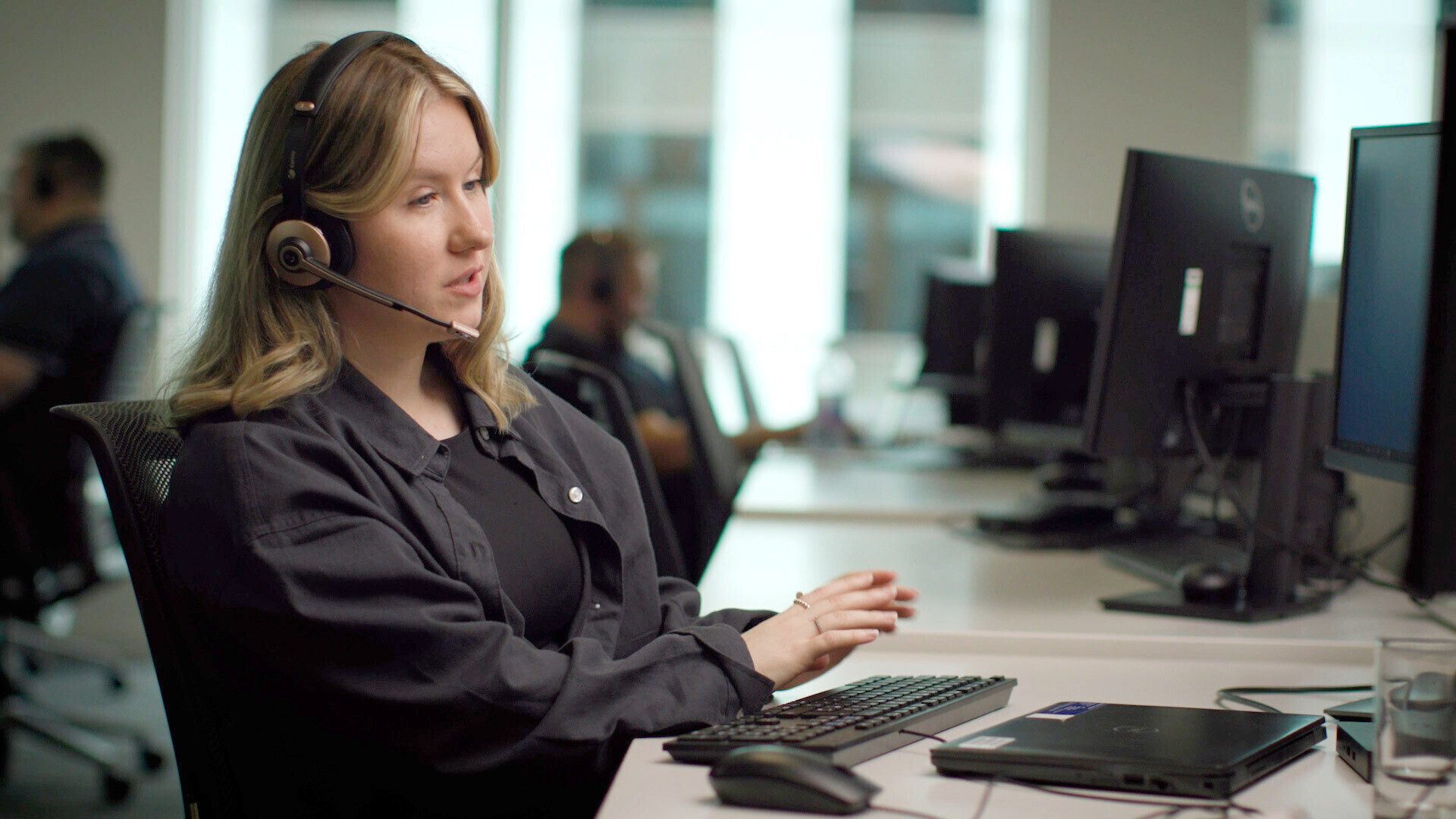13 top leaders from IKEA, Microsoft and more share the advice they're grateful for
播客文字稿
Alexi Robichaux, Better Up In the final analysis, we don't remember great leaders for how smart they were. We remember them for how they made others feel and how they activated their potential.
Linda Lacina, Meet The Leader Welcome to Meet the Leader. The podcast for top leaders share how they're tackling the world's toughest challenges.
In this special compilation episode, leaders from Microsoft to the International Monetary Fund share the advice that they've always been grateful for.
Subscribe to Meet the leader on Apple, Spotify and wherever you get your favorite podcasts. And don't forget to rate and review us. I'm Linda Lacina from the World Economic Forum. And this is Meet the Leader.
Brad Smith, Microsoft The hardest thing you will find is letting go of things.
Daphne Koller, insitro Often times our areas for development are our strengths taken to extreme.
Linda Lacina, Meet The Leader What's a piece of advice you're grateful for?
If you are a regular listener of Meet the Leader you know I ask that question all the time. And I ask it because it unlocks a mini transformation story. It gets us to a turning point. A moment where someone has to change their mind about how they solve a problem, change how they react to situations, change how they talk to people, how they behave.
And it's a personal moment. It's so powerful when they get this advice they apply it again and again and again. Because they know they need to.
It is not a magic spell. It is simply feedback that worked.
It's a gut check that keeps on giving.
I am lucky to have the chance to have talked to so many leaders about the advice that has shaped them. In so many cases these are insights that are all the more revered because they come from people they respect in their careers and in their families.
We share these insights ahead of Thanksgiving in the United States. But honest feedback is something to be thankful for at any time of the year.
We'll get started with letting go with a pivotal moment from Microsoft's Brad Smith.
Learning to let go
Brad is the president of Microsoft and a 30-year veteran of that company. He shared with me earlier this year the advice that was shaping to him when he started his role as general counsel two decades ago: It's how to let go a key lesson for leaders who need to scale impact and values.
Brad Smith, Microsoft When I was named the general counsel of Microsoft 20 years ago, a law firm partner who had been such an important mentor to me said, the hardest thing you will find in your new job is letting go of things, because so often you will feel that if you could do it yourself, you would do it better. But you have to let go. And it's hard. But those words speak to me on many days and in many ways.
I think when you start, if you're ambitious and hard working, you have to have so much pride in the quality of your work. You're a perfectionist and that's how you succeed.
But believe me, with thousands of people I need to work with, I can't control everything that is done. You can always control yourself, and you always have to decide -- there are certain projects that are so important that you actually need to exercise real control. But most of the time, you have to get more comfortable letting go and having less control and constantly trying to bring out the best, the best in ambition and inspiration and integrity and in quality. But you have to get more comfortable letting go, and that's taken a lot of work for me. There are days when I still don't do it well, but that's fundamental to success with a larger team. And so that's been an everyday growth opportunity for me for three decades.
There are certain projects that are so important that you actually need to exercise real control. But most of the time, you have to get more comfortable letting go
”Taking stock of people, partnerships
Linda Lacina, Meet The Leader Some of the advice leaders shared this year helped them question their own assumptions. Christopher Oaks knows this well. He is a marine biologist and the CEO of Reefgen. That is a startup whose underwater tractors replant seagrass and coral, all to restore ocean ecosystems. Many of the technologies and the robots that they have built are first of their kind. So it's critical for them to know who they can trust so they can really build momentum. He shared advice that helps him take stock of the people they work and partner with.
Christopher Oakes, Reefgen So a mentor of mine from many years ago, Joe Kelly, would always ask three questions about an individual, a person, and it's, Can I trust you? Do you care about me? And will you do the right thing? And it took me a long time to really recognize the value of those three questions. But now, having gone through the ups and downs of career and life, when the answer to any one of those questions becomes no, it's sort of a red flag. And it's helpful. It's been a really helpful bit of advice that I've carried with me in my career and personal life to just sort of have that litmus test of where am I in my human relationships.
Be decisive - and a ready listener
Linda Lacina, Meet The Leader Questioning assumptions sometimes just means questioning your own default reactions. Annette Mosman drove this home for me. She is the CEO of APG. It's one of the world's largest pension investors. And you can listen to our episode with her on a report that we did exploring how longevity will change financial planning.
But she also shared advice that she found powerful and has helped her balance decisiveness with modesty. Here's what she had to say.
Take the field and be decisive. But also hear, learn to be modest and moderate.
”Annette Mosman, APG Once one of my shareholders said -- I used to be CFO, so I was explaining why the results were this and not that, and I had all my data in my head -- I did it in my Dutch way, so relatively direct. And, he said to me, he was an Italian, are you really sure you and the Dutch are always right? And I was, there was such an eye opener. Okay. You have to take the field and be decisive. But also hear, and learn to be also modest and moderate and to look into the eyes, to the people to whom you speak. And know what they are thinking, too. It's good advice.
Listen for the passion
Linda Lacina, Meet The Leader Sander Van't Noordende is the CEO of Randstad, is a global recruiting firm based in the Netherlands. We talked at Davos about their Workonitor report and what it reveals about how workforces and motivations are changing. He had a slew of incredible insights that we'll link to in our show notes, but he also shared an important tip for leaders and understanding what their teams value most. Here's what he said.
Sander van 't Noordende, Randstad An insight that I've always been grateful for is, you know, when people are passionate, sometimes maybe even angry, that means, you know, you may have done something not perfect, but it means they care. So don't take anger too personally. You know they care about what you're doing, you know, listen and take it from there. That's an important insight I learned.
Linda Lacina, Meet The Leader How has it helped you?
Sander van 't Noordende, Randstad Well, it helped me to sort of not internalize other people's anger. This person is not happy with the work I did. That's fine. Let's listen. Try to understand where they're coming from. Empathize, so to speak. See what action we can propose and how we can move on. If you internalize other people's anger, you know, it creates a lot of stress and doesn't help anyone.
Don't lose sight of your north star
Linda Lacina, Meet The Leader Olajumoke Adekeye is the founder of Young Business Agency. It's an employment accelerator in Nigeria that has helped thousands better position themselves for the future.
She has always been anchored by a simple reminder from her mother about keeping people at the center of her actions. Here's what she had to say.
Olajumoke Adekeye, Young Business Agency My mother has often reminded me that life is about people, and that's such an anchoring statement because no matter what it is that we are doing or where we find ourselves, remembering that the life that we live today is really about serving others, loving others, providing opportunities for others. We will not lose our compass.
Oftentimes, even when there are challenges in our lives, we can lose sight of the things we ought to be grateful for. But when we realize that often we've been blessed with people who have gone before us, people who also care about us and surround us, it's really important to lean on those individuals.
No matter what it is that we are doing or where we find ourselves, remembering that the life that we live today is really about serving others, loving others, providing opportunities for others. We will not lose our compass.
”Life being about people also really is important because as we think about improving the state of the world, it's really important for us to remember that we're not talking about the financial bottom line, for instance. Yes, we need to recognize that getting the people calculus, right, in whatever sector of the economy that we may be working in is going to be important. And having a people first people centric approach to whatever it is that we do ensures that we remember the value, the importance of humanity.
No one cares how smart you are
Linda Lacina, Meet The Leader Alexi Robichaux is the co-founder and CEO for Better Up. That is a coaching platform for leadership and preventative mental health. He shared advice with me about how leaders can be more empathetic.
Alexi Robichaux, Better Up It's from my high school principal. He used to always tell me, I think, like every time he saw me, no one cares how smart you are. And I think that -- I'm in Silicon Valley. I'm in tech. Being smart has a lot of benefits, but when it comes to leadership, it's generally overrated, I think. And generally, I mean, you probably need to be above average or average intelligence, but that's not what people are looking for in leaders.
This is not about solving the problem. This is about actually solving the team and allowing people to bring their discretionary effort and their full energies to the problem.
”What they're really looking for is people who help them connect with their performanc, their purpose and their potential. And there's an intelligence around that, but not in the way often we define intelligence in Silicon Valley, it's its own form of intelligence. I'd argue,
But I went to a math science high school, so he meant it in the way of like, no one cares how good you are, technology or good you aren at math. And he's really right. In the final analysis, we don't remember great leaders for how smart they were. We remember them for how they made others feel and how they activated their potential. And that's something - I'm not that smart, so it helps. But that's something that I remind myself of every day is like, this is not about solving the problem. This is about actually solving the team and allowing people to bring their discretionary effort and their full energies to the problem.
Rethink what collaboration can bring
Linda Lacina, Meet The Leader Sometimes connecting with others means rethinking what the success of our work together might mean.
Tejpal Bhatia taught me this. He is the chief revenue officer at Axiom Space. That's a startup that runs end-to-end missions to the International Space Station and won the commission to build the first ever commercial space station.
Our interview is a fascinating look at what is needed to build out the space economy. You should definitely listen to that. But he also shared life advice. He values advice that can help anyone rethink how they work with others.
Tejpaul Bhatia, Axiom Fifteen years ago my grandmother gave me advice. It was about marriage, but it's something I've applied to all partnerships, business partnerships, co-founder partnerships, team partnerships.
She was specifically talking about a marriage partnership. It was before my wedding. She told my wife and I that if you take one plus one and get two, you're really not creating more value for yourselves. But if you take one and one and make 11, you've ten-x-ed it for yourselves. And I found that to be very true in all partnerships. Being able to work together with your team, with your customers, with your partners and figuring out how you're better together.
And sometimes it's very hard to even understand this. But even with your competition, that is the approach, especially with a market as new as space. So I think really having an open dialogue, knowing what you want. Being able to communicate that with a person and quickly understanding how together you both get more than you could have imagined. And that's advice I'm very grateful for.
You take yourself with you
Linda Lacina, Meet The Leader Effective leaders understand compassionate communication. That's something that Fidelma Russo, the CTO of Hewlett Packard Enterprise, knows firsthand. She runs a team of more than 5,500 people that work on everything from hybrid cloud technologies to developing technologies of the future. You can listen to our episode on how she taps her team's creativity
But she also shared with me an insight that she got early in her career. Here's Fidelma on why that's helpful -- and what it can unlock.
Fidelma Russo, CTO, Hewlett Packard Enterprise I got a piece of advice once. I didn't appreciate it at the time, and I am immensely thankful for it. And it is the following, which is: you always bring yourself with you.
As I said at the time, I didn't appreciate it. And so sometimes when you are having challenges and difficulties, you really have to look in the mirror and think about, is it you? Is it how you react? And really own that yourself. It kind of clarifies things for you. And I've always appreciated that piece of advice, which I got many, many years ago.
Sometimes when you are having challenges and difficulties, you really have to look in the mirror and think about, is it you? Is it how you react? And really own that yourself.
”I got it when I resigned from my first job. Actually, I got it from a woman. I had the luxury. I worked for a woman VP, which was incredibly rare. When I gave her the reasons I was resigning, she told me this, and I was highly indignant. And I ran into the same challenges a few years later. And then the penny dropped. And then I said, okay, if I have to progress, I'd better do something about these couple of things.
That was kind of how it has informed me. And, you know, you you kind of have these 360-degree feedbacks, you have these coaches and, you know, they all constantly tell you the same things because you are who you are. And so for me, you know, I know those are my little Achilles heels. And, you know, I work on them every day and try to overcome them. And I know what triggers me. And so it is the most precious piece of advice I've ever gotten. And I think it applies to everybody.
Don't let strengths be a weakness
Linda Lacina, Meet The Leader Daphne Koller is an AI pioneer whose career has taken her from academia to founding the drug discovery platform insitro. You can listen to our conversation when she told me about the shift that she needed to make coming to entrepreneurship from the hard sciences.
But she also shared with me a critical insight that she learned and how your strengths can actually be your weaknesses. Especially when you're in a position of authority. Here's Daphne.
Daphe Koller, insitro I would highlight one that I found useful, both in understanding myself and in understanding others (for example, in coaching situations or even in interaction with anyone) which is that oftentimes our areas for development are our strengths taken into extremes.
So, oftentimes when you have something that you're really good at. You end up overusing it and that ends up being minus.
And that's certainly something that I found for myself in cases, for example. I've been considered as very good at ideating and, you know, coming up with new ideas. When you overuse that and you're not careful in how you use that, especially if you're in a position of authority, every new idea somehow miraculously spawns a project that an entire team is working on, even if that was just really not your intent. Your intent was just to say, "oh, this is a really interesting thing." And so being very conscientious of what your strengths are and not overusing them.
And then also the same is true for others. You sometimes see people like why are they doing that? That's just such a horrible thing. And you realize that this is just like their strength, but taken to extremes. It makes you more empathetic and more able to give them feedback that will actually be received in the right way.
Amplify your expertise, admit what you don't know
Linda Lacina, Meet The Leader Nigina Muntean is the chief of innovation at the United Nations Population Fund. She's also a former physician and public health expert. She explained to me how being rooted in what she knows and wants has helped her not only get her voice heard, but to make better decisions. Here's Nigina.
Nigina Muntean, UNFPA Be authentic yourself. You know, coming from a developing country, myself, originally, I did have that kind of perception, of. do I fit or now? And I'm a medical doctor and often talk to technology companies. Do I fit the conversation? I think stay true to yourself. If I don't know, I don't know. I ask and I admit I don't know. But if I know, I speak about it and with passion and authority. So. I think this is helping me. Helping in my confidence. Helping in my development. It's also helping me to stay in that path of growth, which I am committed to.
And in my career, I never saw my growth as like a vertical ladder. It's kind of almost a jungle gym movement. Sometimes it's lateral, sometimes it's going down and volunteering somewhere. Sometimes it's jumping up and accepting new challenges and new opportunities.
But I always did what I love, and, throughout my professional career, I never did something I just do for, you know, pay the bills and get salary, you just work somewhere. No, I always did what I really love and passionate about. And I think that's part of also staying true to myself and to my interests and to my beliefs.
Invest in truly knowing yourself
Linda Lacina, Meet The Leader Ulrika Biesert is the HR Chief of Ingka Group, that is the parent company for IKEA. And she talked to me this spring about how the global retailer has reached gender balance in leadership. But she also urged people to invest the time into understanding who they really are, what they really want from jobs and life, from family. That time will be well spent and help you navigate difficult decisions down the road. Here's Ulrika.
Ulrika Biesert, Ingka Group / IKEA Who are you for real? And trying to be yourself at the greatest extent, because directly when you start to play a role, your energy is leaking.
If you can be very intentional what company you choose to work for. And in that, it becomes lead yourself. But you can't lead yourself in my experience if you don't know yourself.
So I would say specifically because we talk so much about resilience now, so much about agility, so much on constant changes, if I'm taking the broader perspective. Also with social media, with the pressure to always have something to compare to. I think the pressure, and you have the climate -- and I can continue. There's quite a lot of pressure on young people today. Also about the future and how the future will look like.
I think to build up yourself, to feel good about yourself, to build strengths within yourself, to find your values and how you can navigate yourself is the biggest gift you can give yourself. And then you will also take -- I believe -- better decisions, because you will take decisions based on what you want, what you need, not what others want from you.
Question what you don't accept or understand
Linda Lacina, Meet The Leader Madison O'Brien is a community engagement lead with Teamgage. That is a special platform that drives company cultures and engagement. She's also a Global Shaper, part of a special community of young people around the world who help drive change in communities.
She shared a special gut check that can help any of us better create boundaries for ourselves and others in the workforce. Here's Madison.
Madison O'Brien, Teamgage I think my favorite piece of advice was a few years ago from a colleague, and I had mentioned to her that I have witnessed this really unusual behavior in a meeting between a senior leader and an employee. And she turned around and she said to me, You walk past the standard that you choose to accept. And that hit me like a ton of bricks.
I was like, okay, if I'm not if I witness something in the workplace that I'm not comfortable with, it's probably the case that other people felt uncomfortable in that situation. So for me now, I am certainly very much more contributing to the conversations when I see things that I don't necessarily agree with or understand. It's learning more about that and being open and curious in those ways as well.
Believe in yourself
Linda Lacina, Meet The Leader I will leave you with one last insight. This from the International Monetary Fund's Kristalina Georgieva. It's a simple reminder that can help get any of us right sided.
Kristalina Georgieva, IMF Believe in yourself. If you don't believe in yourself, why would anybody else believe in you?
Linda Lacina, Meet The Leader Thanks so much to all of the leaders who shared insights with us this year. And thanks so much to you for listening.
To check out the full conversations with these leaders, go to the show notes of this episode will make sure to have links.
For a transcript of this episode or episodes from my colleague's podcast, Radio Davos, go to wef.ch/podcasts.
This episode of Meet the Leader was produced and presented by me, with Taz Kelleher as editor, Juan Toran in Davos and Gareth Nolan driving the studio production.
That's it for now. I'm Linda Lucina from the World Economic Forum. Have a great day.
What's a piece of advice that changed you for the better? In this special episode of Meet The Leader, top leaders from Microsoft, to IKEA to the International Monetary Fund and more share the feedback that was so meaningful and compelling they'd applied it throughout their careers. Learn the tough moments and powerful feedback that led to turning points and transformations, nudging leaders to reflect, change course, listen in new ways and change how they react to scale their impact.
Featured in this episode:
Olajumoke Adekeye, Founder, Young Business Agency
Tejpaul Bhatia, CRO, Axiom Space
Ulrika Biesert, CHRO, Ingka Group / IKEA
Kristalina Georgieva, Managing Director, International Monetary Fund
Daphne Koller, CEO, insitro
Annette Mosman, CEO, APG
Nigina Muntean, Chief of Innovation, UNFPA
Sander van 't Noordende, CEO, Randstad
Christopher Oakes, CEO, Reefgen
Madison O'Brien, Customer Success and Community Lead, Teamgage
Alexi Robichaux, CEO, Better Up
Fidelma Russo, CTO, Hewlett Packard Enterprise
Brad Smith, Vice Chair and President, Microsoft
话题:
领导力分享:
更多集:
每周 议程
每周为您呈现推动全球议程的紧要问题(英文)
